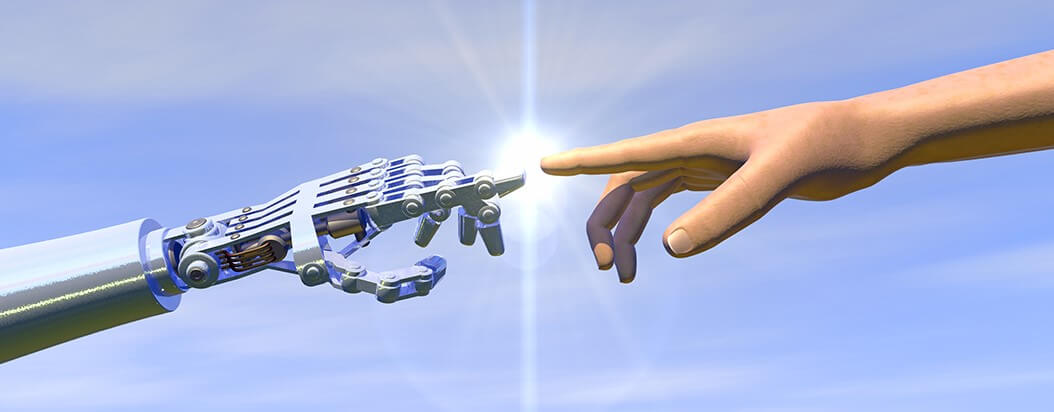The Fourth Industrial Revolution, Robotics, and Artificial Intelligence
The first major change came about as a result of using steam and water to power production. The second industrial revolution was notable for mass production, division of labor, and electricity. The third industrial revolution took place at the turn of 1969, with automated production and the emergence of computing and electronics. The fourth will be as a consequence of the digital transformation, a result of the fusion of technologies that is breaking down the limits between the digital, physical, and biological spheres.
This reality, which is becoming increasingly evident—especially in certain production sectors—frightens many people, perhaps because of the examples we have seen in fiction. Far from heading toward a grim future in which machines decide to turn against human beings, and contrary to all kinds of pessimistic predictions with regards to the mass destruction of jobs, let us look at the consequences that previous industrial revolutions had on humanity as a whole. Just think that every technological advance has improved working conditions for the majority of people, making the world a progressively more humane place, which tells a different story from those mechanized and dehumanized societies that have sometimes been portrayed in cinema and literature.
As an example, our relationship with robots will not be like that shown in “Terminator,” but more like the one we saw in “Star Wars” with R2D2 or C3PO. Such advances in artificial intelligence won’t result in a fight against robots, as we have seen so many times in films, but more a gradual decline in manual labor. Thanks to this collaboration with robots, people will enjoy a greater ability to balance both their professional and personal life, as well as to spend more time innovating, developing new products and services, and making more informed decisions. Robotics will have a decisive impact on the consumer sector, not only in product development but also in production, storage, and distribution phases. However, to achieve this harmonious future, it will be necessary to maintain a degree of ethical control and responsibility in the development of artificial intelligence and robotics, paying close attention to the advice given by influential persons in the technological world—such as Bill Gates, Stephen Hawking and Elon Musk—who have raised the importance of keeping powerful technology under control to ensure it is not allowed to turn against humankind.
The debate on artificial intelligence intensifies as advances bring us ever closer to the type of intelligent robots thought up in science fiction by authors like Isaac Asimov. However, as Asimov said, “A robot may not injure a human being or, through inaction, allow a human being to come to harm.” With this in mind, we can breathe easy.
Featured Opportunities
There are no job results within your geolocated area. If you’d like to look at other opportunities:
View All of Our Available Opportunities